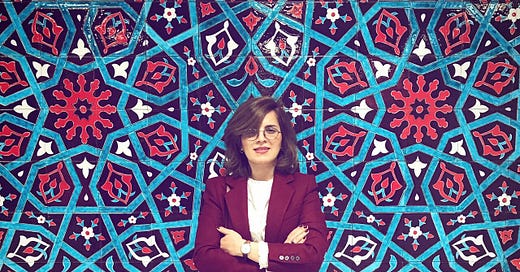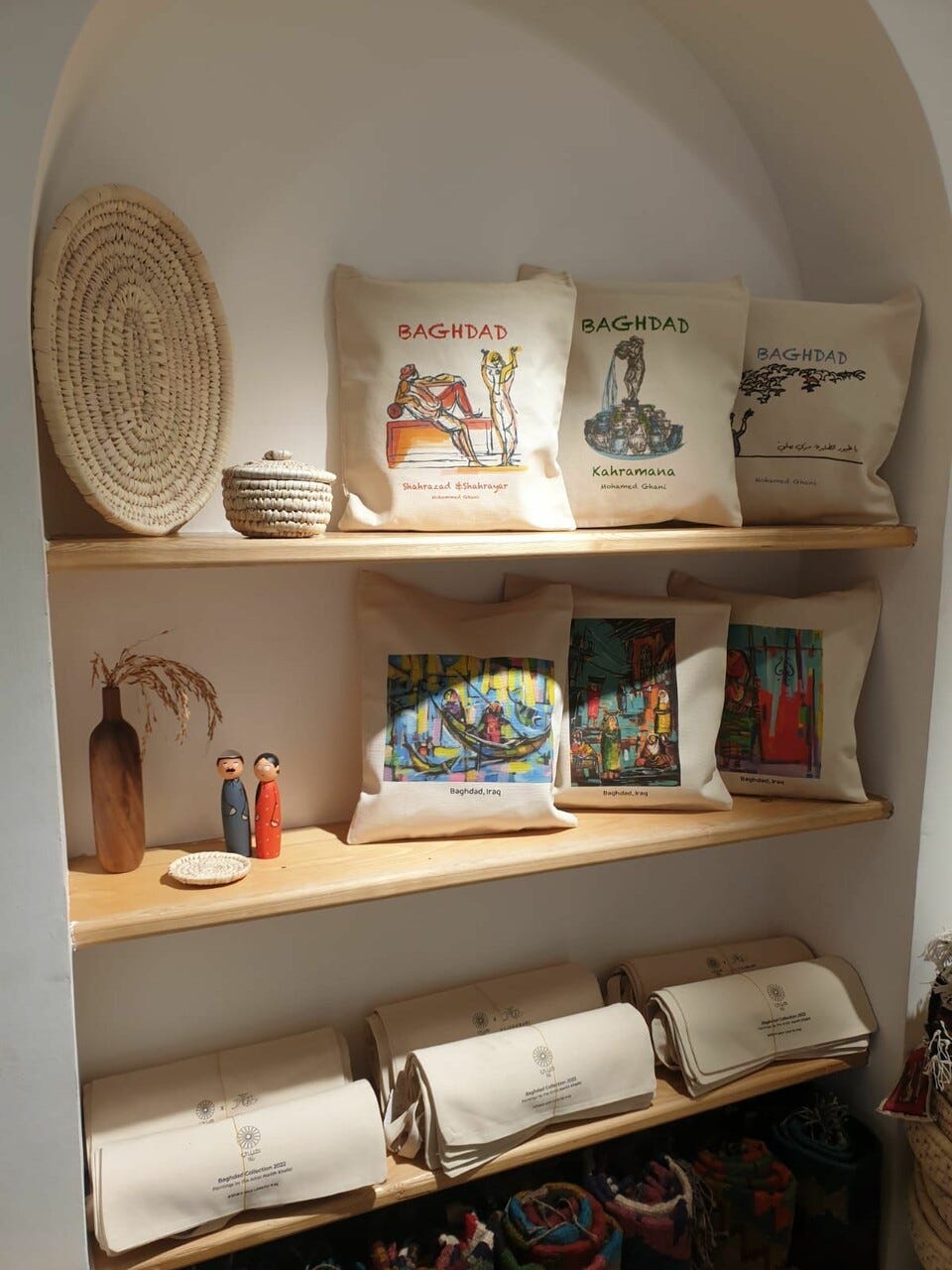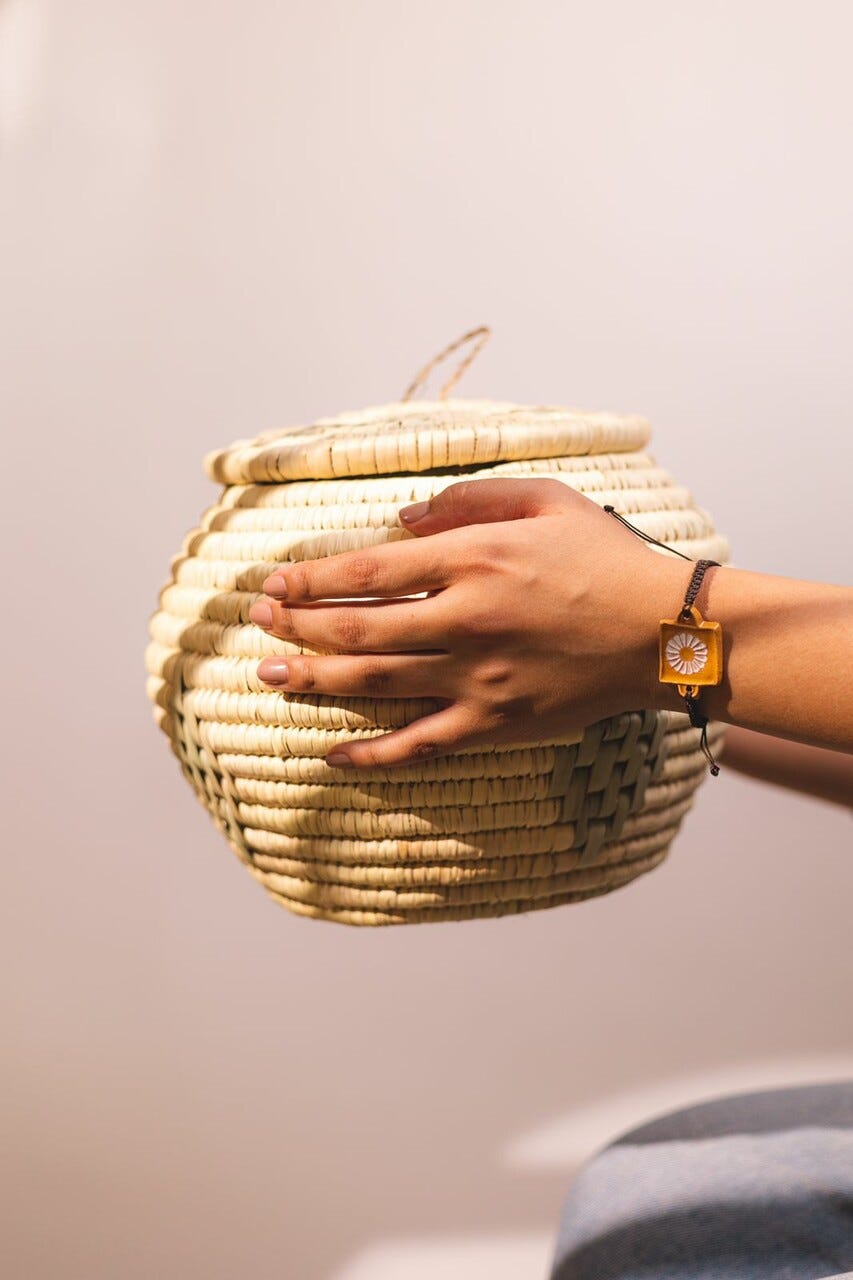Handmade Heritage: The Female Artisans Reviving Iraq’s Ancient Past
The Hili Project employs low-income women to produce bespoke pieces inspired by Mesopotamian crafts.
When Rasha met Noor Hashim, she had no job and little means of providing for her three children. As a single mother in Iraq, opportunities to improve her circumstances were scarce, and the family was sinking deeper and deeper into poverty. Then she attended a training workshop for women in Baghdad and met Hashim, a young entrepreneur intent on revolutionizing the city’s crafts scene to produce beautiful contemporary pieces celebrating Iraq’s ancient roots.
“I want to raise awareness about our unique history and heritage,” says Hashim, who launched the Hili Project in December 2016, beginning with a showroom in Babylon Mall, named after the mighty capital of the ancient Babylonian Empire.
Iraq’s arts and crafts scene are awash with mass-produced trinkets from abroad, most of which have little to do with the country’s Mesopotamian heritage and evolution over thousands of years. Hashim is rectifying this through Hili, which means love or cordiality in Sumerian, the language spoken by the earliest civilization in southern Mesopotamia.
Her pieces, which draw on the work of this and other civilizations throughout Iraqi history, include jewelry modeled on Sumerian and Babylonian designs, carved from Lapis Lazuli, Agate, Coral, Amber and other semi-precious stones popular in those times.
Each piece is handmade by Rasha and other artisans on the project, which now employs around 16 women, mostly from low-income families. “Many of these women are widows supporting their families with no other income,” says Hashim. “We made it our mission to work with this type of artisan because I believe in social enterprise.”
Over the years, Hashim has developed close relationships with her employees, who range in age from 35 to 60 and specialize in different crafts supporting her business. Rasha, who works closely with Hashim on quality control to ensure each line employs the highest standards of production and design, has become an expert in jewelry making and basket weaving, spending her days pouring over pieces inspired by traditional Iraqi designs.
All the Hili products are drawn from Mesopotamian culture and heritage, but unlike the souvenirs typically found in Iraq, they are sleek and contemporary, more at home in a boutique than at a market stall. “I make deals with Iraqi artisans to create something special and unique for the Iraqi market,” Hashim says, pointing to a new line of tote bags featuring prints by famous Iraqi artists.
Some draw on the work of the late Mohammed Ghani, who is credited with creating some of Baghdad’s most magnificent sculptures and monuments. Another depicts women in the tightly-packed backstreets of Baghdad, balancing the beauty of an everyday scene against the pathos of a place where poverty dictates the way of life.
Many of the women Hashim works with live in these neighborhoods, and it is essential to her that their skills are celebrated and their situations improved. “Iraqi women need to work, they have passion and power, and as a woman, I feel we need to support each other. Life here in Iraq is not easy, but it’s our mission to help them make better lives,” she says.
As the company grows, so does her ability to provide work for these women, and others like them in the future, with profits climbing rapidly as word about the Hili Project spreads. That money is being reinvested in the company to fuel further growth and provide jobs to more artisans in Iraq. In addition, Ideas Beyond Borders has provided an Innovation Hub grant to support a marketing strategy and expand into the US.
“Hashim and her Hili project are what the future of the Middle East looks like in a microcosm. She is supporting the community, not just by employing other women but by encouraging them to create art and products that are rooted in traditional culture but embrace modern design and international appeal,” says Faisal Saeed Al Mutar, founder and president of Ideas Beyond Borders.
Hashim is confident the products, which also include beautiful notebooks and bookmarks, handwoven baskets, locally made tea and clay magnets featuring ancient Iraqi symbols, will capture the attention of US shoppers interested in bespoke heritage pieces. “All shoppers, Iraqi and foreign, comment on the quality and unique nature of our pieces,” she says. “There is nothing else like this coming from Iraq.”








